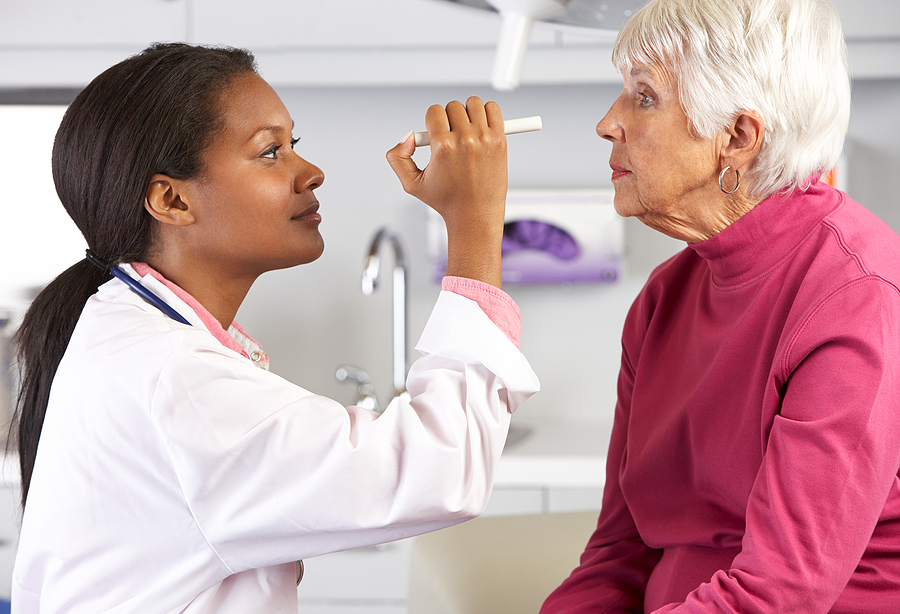Why Your Senior Parent Needs A Yearly Eye Exam

Author: Home Helpers Home Care
When was the last time your senior parent had an eye exam? If it’s been close to a year, or longer, now is the best time to schedule an eye appointment for them. March is National Save Your Vision month so it’s a great time to help your mom or dad get their vision checked.
Seniors should be getting an eye exam at least one a year, or twice a year if they have a history of vision problems. There are several different eye conditions that can impact seniors as they age, but in many cases early detection can prevent those conditions from becoming very serious.
If you’ve been putting off taking your mom or dad to the eye doctor because you work and have a hard time getting time off to take them to appointments, senior home care can help. A senior home care provider can take your mom or dad to medical appointments like eye exams, hearing screenings, and dental appointments.
Schedule an eye exam for your mom or dad today to help lower their risk of age-related eye conditions like:
Cataracts
Cataracts happen when the lens of the eye becomes cloudy. This can make vision blurry, dull, or foggy. Seniors with cataracts may have trouble seeing at night, and lights may seem too bright or have halos around them. Cataracts develop slowly over time and are very common in older adults. The good news is that when caught early, seniors often can have surgery done to remove the cloudy lens and replace it with a clear one.
Glaucoma
Glaucoma is a group of eye diseases that damage the optic nerve, which is needed for clear vision. It is often caused by high pressure inside the eye. At first, glaucoma may not cause symptoms, but over time, it can lead to vision loss, especially in the outer parts of vision.
If left untreated, glaucoma can cause blindness. Eye doctors can check for glaucoma with regular eye exams, and treatments like eye drops, laser therapy, or surgery can help control the disease.
Age-Related Macular Degeneration (AMD)
AMD affects the macula, the part of the eye that helps with sharp, central vision. This condition makes it hard to see details, which can affect reading and recognizing faces. There are two types of AMD: dry and wet.
The dry type is more common and happens slowly, while the wet type is more serious and can cause vision loss quickly. While there is no cure for AMD, treatments like special vitamins, laser therapy, and injections can help slow it down.
Diabetic Retinopathy
Diabetic retinopathy is a condition that affects people with diabetes. High blood sugar levels can damage the tiny blood vessels in the retina, leading to vision problems.
In the early stages, there may be no symptoms, but as the condition worsens, seniors may experience blurry vision, dark spots, or even blindness.
Managing blood sugar levels and getting regular eye exams can help prevent or slow down diabetic retinopathy. Treatments like laser therapy and injections can help if the condition becomes severe.
If your mom or dad has diabetes, they may need to have their eyes checked every six months to make sure they are not developing diabetic retinopathy.
Dry Eye Syndrome
Dry eye syndrome happens when the eyes do not produce enough tears or when the tears evaporate too quickly. This can cause burning, itching, redness, and a feeling like something is stuck in the eye.
Dry eyes can make it uncomfortable to read, watch TV, or use a computer. Seniors are more likely to develop this condition because tear production decreases with age. Using artificial tears, humidifiers, and certain prescription eye drops can help relieve dry eye symptoms.
If you or an aging loved one is considering senior home care in Los Gatos, CA, please contact the caring staff at Home Helpers today (408) 317-4969.
